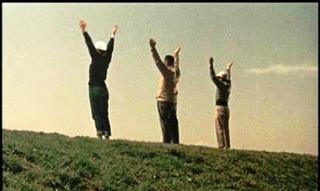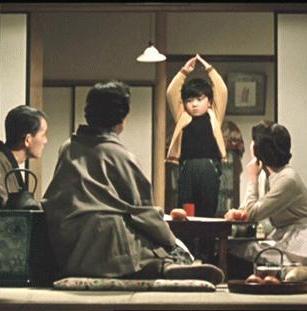the movie follows a childhood love through the troubled history of hungary post world war 2 when it was taken over first by the nazis, then the russians and communist rule, and finally in 1956 when russia re-invaded it to crush the hungarian revolution. a love is separated across country lines and belief systems, while kata is in democratic
the movie is divided into two clean halves, the journey to her and the time that they spend together in
ozu's ‘good morning’ is set in a tiny housing colony somewhere outside a large city in japan. in this community, there are four to five families who live in vaguely americanized japanese homes. the tatami mats, the screen doors are all present but in materials that are strange and new- ribbed glass, polyester, plastic. this disjunction between the two- a firmly rooted cultural tradition, and the power and the allure of the changing times seemed to be the main theme of the movie as the wave of a new economic system leaves its disturbing and fascinating imprints on the people of the community.
we see all of this through a charming and very funny story of two brothers who decide to protest their family’s reluctance to buy a television by not speaking at all indefinitely. while this is the central storyline of the movie, there are many others that run parallel and playfully alongside. all the characters seem like caricatures in a soap opera and behave as such and the jokes range from the subtle to the flatulent. i had no idea that ozu’s films could be so funny. in spite and because of the cuteness of it all (especially isamu- the younger brother’s ‘i love you!’ and his hand gesture to ask permission to speak), i loved the film.
the irony of it all is that the tv finally enters the house when the father realizes that he is going to need something to occupy his time after he retires. reminded me of robert venturi’s big gilded tv antenna on the old peoples home he designed in



No comments:
Post a Comment